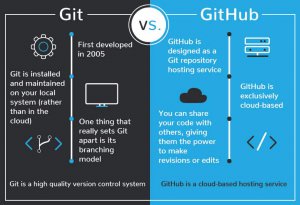Educate your boss about…Git

- Git is the most popular distributed version control system known for its speed, workflow compatibility, and open source foundations.
- The global version control system market size was valued at US$897.2 million in 2019 and is expected to grow at a CAGR of 12.6% between 2020 to 2026.
Say your company has 20 developers located in different parts of the world, and they are all working on a large software project. Since software development includes the continuous process of modifying programs, pushing changes, considering bug tracking reports, copying & branching code, and weighing up feature requests, keeping track of all of this should be a critical piece of a development workflow. That is when version control systems play a critical role.
Historically, developers used various version control systems, including CVS and SVN. But Git is now considered the standard way that even very small teams can keep track of all the elements of a project while it’s being worked on concurrently or serially.
Without version control, it would be next to impossible to track the changes to code, who made them, and when they were made. It would also be next to impossible to roll back changes, merge new tranches coming from multiple developers, and allow engineers to “check out” code such that other engineers can’t overwrite what one developer (or team of developers) is doing. In simple words, without version control systems, modern software development would be a chaos.
Atlassian puts it, “Git is a mature, actively maintained open source project originally developed in 2005 by Linus Torvalds, the creator of the Linux operating system kernel. A staggering number of software projects rely on Git for version control, including commercial projects as well as open source.”
Like Torvalds’ Linux kernel, Git is open source and completely free to distribute, see, edit and copy. Git still offers the strongest feature set for developers, with the most reliable workflow, on top of being supported by the most third-party platforms on the market. If you’re in software, you know (or should) know your way around Git.
The what and how of Git
Git is a distributed version control system, so individuals get (or can get) a copy of the code repository of their own in a clone of the project. This means he or she can work and add code to the repo (repository) even while offline since the repository lives on the developer’s local resource, typically their computer. That means the developer should be able to ensure they are in sync with the rest of the development team’s activities since a local repository is separate from the others.
YOU MIGHT LIKE

Microsoft to buy open source torch-bearer Github
Git can automatically merge changes made by an individual, so two people can even work on different parts of the same file and later merge those changes without losing each other’s work. The merging is most often done by a project’s lead or maintainer. In this situation, individuals often submit pull requests to a project: these are requests that suggested changes be “pulled into” the code.
Teams typically use online hosts such as GitHub to store a copy of the files and their revision history, plus any other assets pertaining to a project. Any part of the repository can be cloned, checked out and merged back into any branch of the project. (Branches are copies of the project used for specific purposes. For example, there might be a “stable branch” and a more out-there, experimental “development branch.”)
The most commonly used Git hosting service is GitHub, an online database that allows you to keep track of and share your Git version control projects outside of your local computer/server. While anyone can host their own Git service, many projects use GitHub, GitLab or Gittea (pronounced “Git Tea”) as their public-facing host.
GitHub is a for-profit service, although basic repository-hosting features are available at no cost, thereby making GitHub a popular choice for open-source projects. Reports claim that as of November 2021, GitHub caters to over 73 million users and hosts 200 million private and public repositories.

Git vs GitHub
Like all things, fashions and preferences change as to which Git services are most popular. GitLab offers a built-in option which allows GitHub users to migrate their projects directly into GitLab. SourceForge once ruled the roost but has fallen out of favor. GitHub has suffered from the PR taint of being acquired by Microsoft, a company that is less popular in the development community than most.
Since we are living through a time of increasing need for ease of operations and developer-friendly solutions, the version control system market is expecting further growth. The global version control system market size was valued at US$897.2 million in 2019 and is expected to grow at a CAGR of 12.6% between 2020 to 2026. Git solutions monetize by adding features to free tiers that companies are willing to pay for to better produce software. While the technological foundation (Git) remains much the same, the services differ in their approach, methodology, market focus and target audience.









